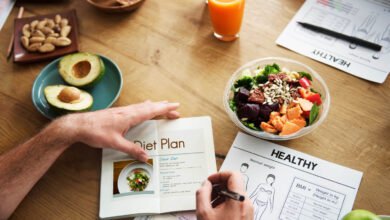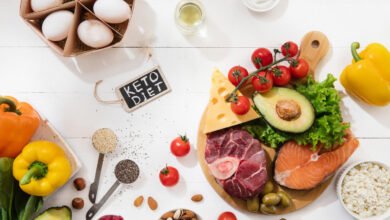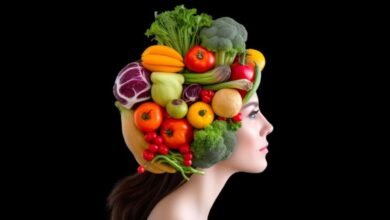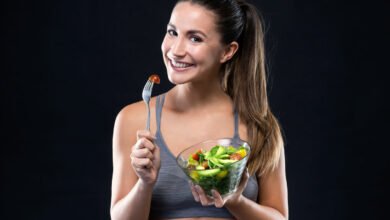The Vegan Diet 101: Everything You Need to Know to Get Started
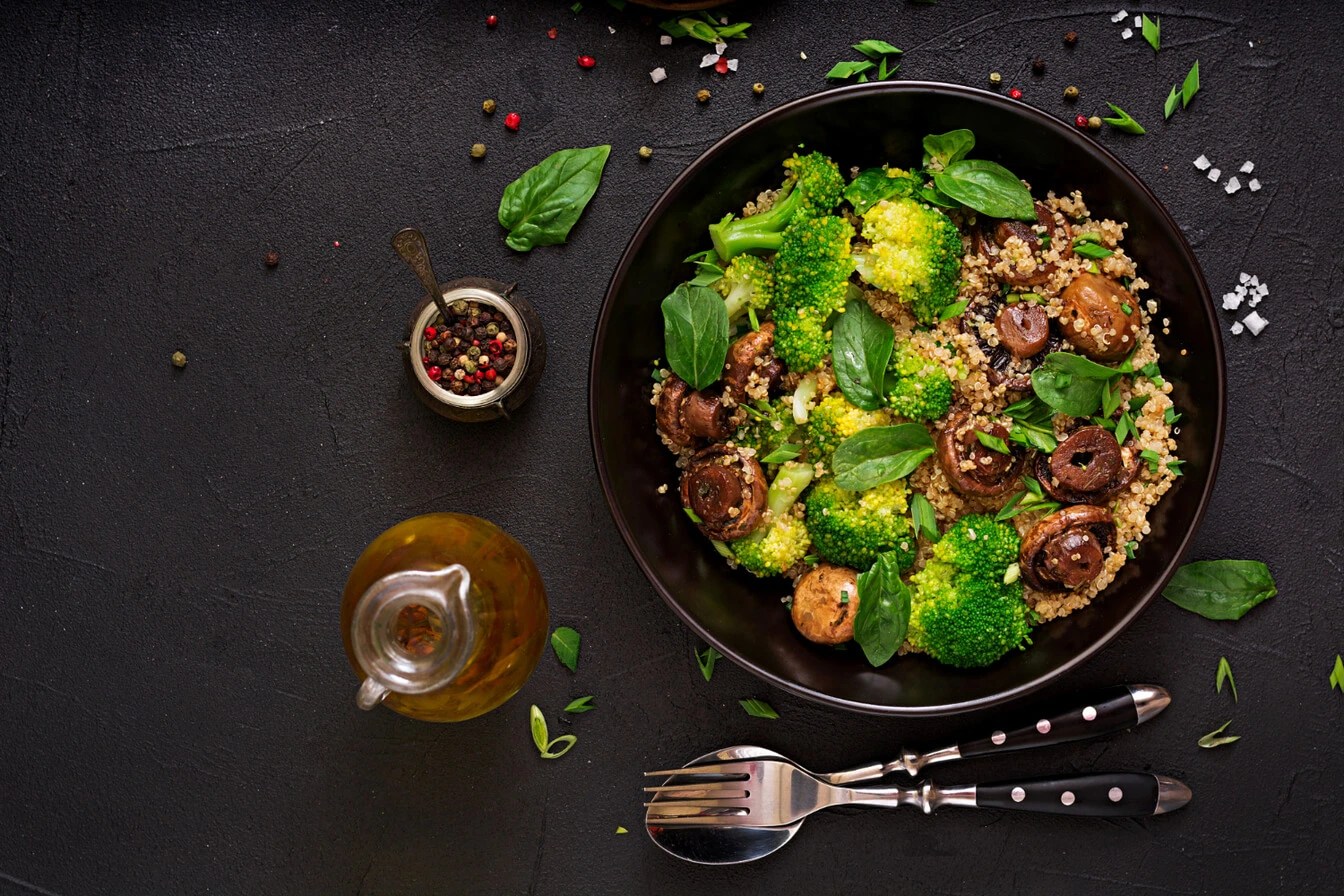
Welcome to the world of the vegan diet! Whether you’re considering embracing a plant-based lifestyle or simply curious about the benefits it offers, this article will provide you with everything you need to know to get started.
The vegan diet is a lifestyle choice that excludes the consumption of animal products. This means abstaining from meat, poultry, fish, dairy, eggs, and even honey.
Vegans choose to focus on plant-based foods and alternatives that are sourced ethically and sustainably. It’s not just a diet; it’s a compassionate way of living that extends to animals, the environment, and personal well-being.
Throughout this article, we’ll delve into the basics of the vegan diet, explore its health benefits, discuss essential nutrients, provide tips for getting started, share delicious vegan recipes, address common questions, and offer guidance for dining out and navigating social situations.
So, let’s dive in and explore the incredible world of the vegan diet, discovering how it can positively impact your life and the world around you.
Understanding the Vegan Diet
The vegan diet is gaining popularity due to its numerous health benefits and ethical considerations.
In this section, we will delve into the basics of the vegan diet, explore its health advantages, and discuss essential nutrients for vegans.
Basics of the Vegan Diet
The vegan diet is a plant-based eating plan that excludes all animal-derived products, including meat, poultry, seafood, dairy, eggs, and honey.
Vegans embrace a lifestyle that promotes compassion towards animals and aims to minimize harm to the environment.
Adopting a vegan diet involves making conscious choices to replace animal products with plant-based alternatives.
This means focusing on a variety of fruits, vegetables, whole grains, legumes, nuts, and seeds to meet your nutritional needs.
Health Benefits of the Vegan Diet

Embracing a vegan lifestyle offers numerous health benefits. Research suggests that vegans generally have lower body weights, reduced risks of heart disease, type 2 diabetes, and certain cancers, as well as improved overall well-being.
By following a well-planned vegan diet, individuals can enjoy increased fibber intake, which aids in digestion and helps maintain healthy cholesterol levels.
Plant-based diets are also naturally low in saturated fat and cholesterol, contributing to better cardiovascular health.
Essential Nutrients for Vegans
While a vegan diet can be nutritionally adequate, it’s essential to pay attention to certain nutrients that may require special attention. Here are some key nutrients to consider:
1. Protein Sources: Contrary to common misconceptions, it is entirely possible to meet your protein requirements on a vegan diet. Incorporate protein-rich plant foods such as legumes (e.g., beans, lentils, and chickpeas), tofu, tempeh, seitan, and edamame into your meals.
2. Iron-Rich Foods: Plant-based iron sources include leafy greens like spinach and kale, lentils, chickpeas, fortified cereals, and quinoa. Enhance iron absorption by consuming vitamin C-rich foods like citrus fruits or bell peppers alongside iron-rich meals.
3. Calcium Sources: Calcium is crucial for maintaining healthy bones and teeth. Vegans can obtain calcium from fortified plant milks, calcium-set tofu, dark leafy greens (such as broccoli, kale, and collard greens), almonds, and sesame seeds.
4. Omega-3 Fatty Acids: Essential for brain health, omega-3 fatty acids can be found in chia seeds, flaxseeds, hemp seeds, walnuts, and algae-based supplements.
5. Vitamin B12 Supplements: Vitamin B12, primarily found in animal-derived foods, is essential for nerve function and the production of red blood cells. Vegans should consider taking a vitamin B12 supplement or consuming fortified foods like plant-based milk alternatives or breakfast cereals.
Read Also: The Mediterranean Diet 101: A Healthy and Sustainable Way to Eat
Getting Started with the Vegan Diet
Transitioning to a vegan lifestyle can be an exciting and rewarding journey. In this section, we will explore practical tips and guidance to help you get started on your vegan diet.
Whether you choose to make a gradual shift or dive right in, these steps will set you up for success.
Transitioning to a Vegan Lifestyle
Making a major dietary change can be overwhelming, but with a thoughtful approach, you can make a smooth transition to a vegan lifestyle. Here are some strategies to consider:
- Gradual Approach vs. Cold Turkey: There’s no one-size-fits-all approach to going vegan. Some people find it easier to make gradual changes by gradually eliminating animal products from their diet. Others prefer to make a clean break and go vegan overnight. Choose the method that suits your personality and lifestyle.
- Meal Planning and Preparing: Planning your meals in advance can help you stay on track and ensure you’re getting balanced nutrition. Start by researching vegan recipes and creating a weekly meal plan. Make a shopping list and stock up on plant-based ingredients, including fruits, vegetables, legumes, grains, and nuts.
- Finding Vegan Alternatives: One of the keys to a successful transition is finding vegan alternatives for your favorite non-vegan foods. Today, there are numerous plant-based substitutes available for dairy products, meat, and even eggs. Explore options like almond milk, tofu, tempeh, seitan, and plant-based burgers to help satisfy your cravings.
Stocking a Vegan Pantry
Having a well-stocked vegan pantry is essential for maintaining a healthy and varied diet. Here are some staple items to include:
- Essential Ingredients: Fill your pantry with a variety of whole plant foods. Stock up on grains like quinoa, brown rice, and oats, as well as a selection of legumes such as chickpeas, lentils, and black beans. Don’t forget to include a range of spices and herbs to enhance the flavour of your dishes.
- Vegan Substitutes and Alternatives: While it’s important to focus on whole foods, having some vegan substitutes on hand can make your transition easier. Consider options like plant-based milk, vegan cheese, tofu, and meat alternatives. However, remember to consume these in moderation as they are processed foods.
- Reading Food Labels: When you start your vegan journey, you’ll become more mindful of the ingredients in your food. Learn to read food labels to identify animal-derived ingredients. Look out for terms like “whey,” “gelatin,” or “casein” which indicate the presence of animal products.
Dining Out and Social Situations
Eating out and socializing can present challenges for those following a vegan diet. However, with a bit of planning, you can navigate these situations smoothly:
- Communicating Your Dietary Needs: When dining out, don’t hesitate to communicate your dietary preferences to the restaurant staff. Most establishments are accommodating and can provide vegan options or make modifications to existing dishes. Be clear about your restrictions and ask questions about ingredients if needed.
- Vegan-Friendly Restaurant Options: Do some research and discover vegan-friendly restaurants in your area. Many cities have dedicated vegan or vegetarian establishments, while others offer vegan options on their menus. Explore online resources, vegan food blogs, and social media groups for recommendations.
- Navigating Social Gatherings: Attending social events can sometimes be challenging, especially if vegan options are limited. In such cases, consider offering to bring a vegan dish to share, or eat a hearty meal before you go so that you’re not overly reliant on the available options. Engage with others and use the opportunity to educatethem about the vegan diet in a positive and informative manner.
Remember, transitioning to a vegan lifestyle is a personal journey, and it’s important to be patient and kind to yourself during the process.
Celebrate your progress and focus on the positive changes you’re making for your health, the environment, and animal welfare.
Delicious Vegan Recipes
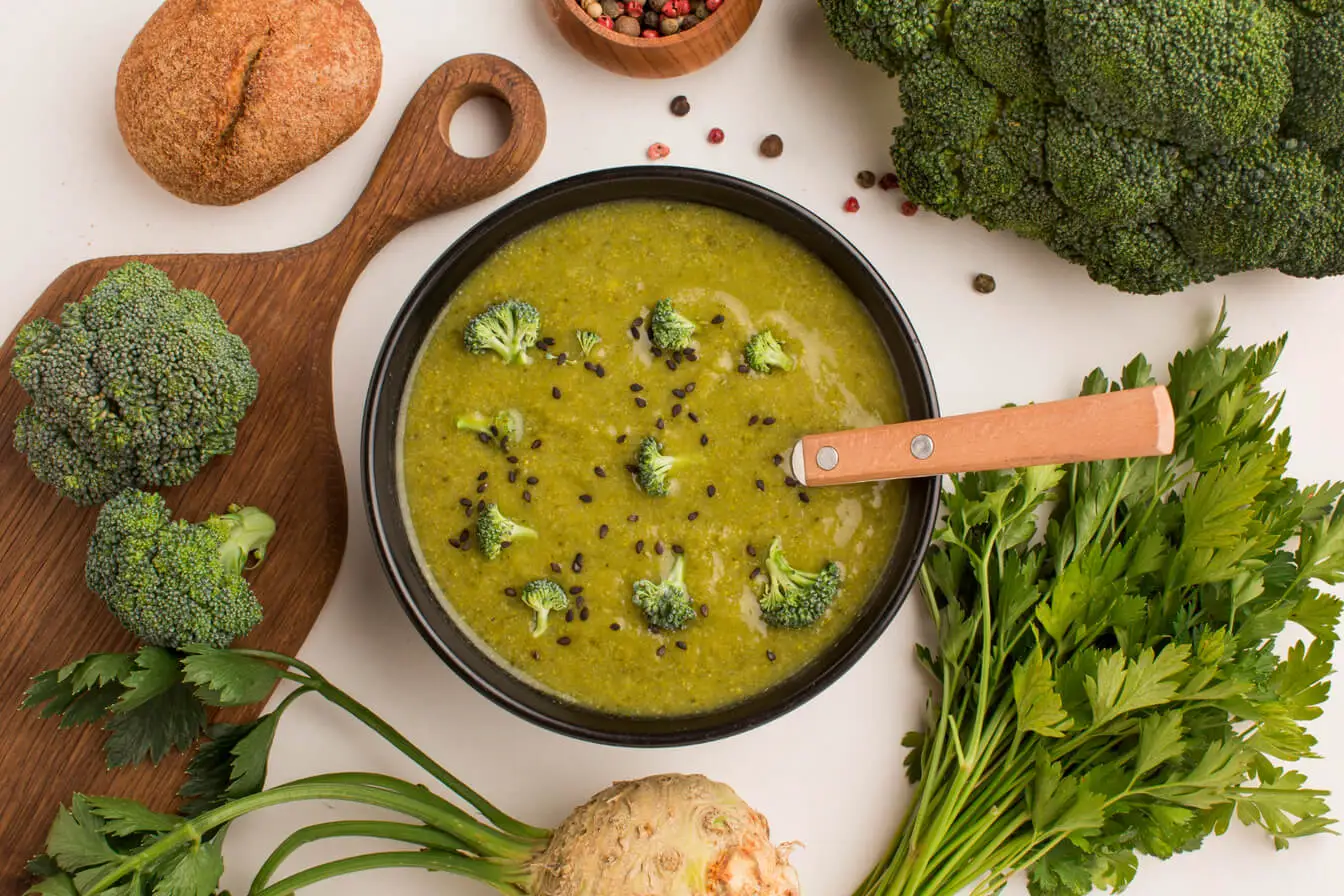
Eating a vegan diet doesn’t mean sacrificing flavour or variety. In fact, it opens up a whole new world of delicious plant-based dishes. Here are some mouth watering vegan recipes to inspire your culinary journey:
Breakfast and Brunch Ideas
Vegan Blueberry Pancakes
Start your day with fluffy vegan blueberry pancakes. Combine plant-based milk, flour, baking powder, and a touch of sweetness with fresh blueberries. Cook them on a griddle until golden brown, and serve with maple syrup.
Tofu Scramble
Create a savory tofu scramble that rivals traditional scrambled eggs. Sauté crumbled tofu with veggies like bell peppers, spinach, and onions. Season with turmeric, cumin, and nutritional yeast for a cheesy flavor. Serve it alongside whole-grain toast for a satisfying breakfast.
Lunch and Dinner Recipes
Chickpea Curry
Indulge in a hearty chickpea curry packed with aromatic spices. Sauté onions, garlic, and ginger in a pot, then add chickpeas, tomatoes, and coconut milk. Let it simmer until the flavours meld together. Serve it over brown rice or with naan bread.
Lentil Bolognese
Prepare a flavorful lentil bolognese as a vegan twist on a classic pasta dish. Sauté onions, carrots, and celery until tender.
Add cooked lentils, tomato sauce, and herbs like oregano and basil. Simmer the sauce until it thickens, and toss it with your favourite whole-wheat pasta.
Snacks and Desserts
Roasted Chickpeas
Make a crispy and protein-packed snack by roasting chickpeas. Toss cooked chickpeas with olive oil, salt, and spices like paprika or cumin.
Roast them in the oven until they become golden and crunchy. Enjoy them as a guilt-free snack on their own or sprinkle them on top of salads.
Vegan Chocolate Avocado Mousse
Indulge your sweet tooth with a creamy vegan chocolate avocado mousse. Blend ripe avocados, cocoa powder, plant-based milk, and a sweetener like maple syrup.
Refrigerate until it reaches a smooth and velvety consistency. Serve it in small dessert cups and top with fresh berries.
Remember, these recipes are just a starting point. Feel free to get creative, experiment with different ingredients, and tailor them to your taste preferences. The possibilities in vegan cooking are endless!
Conclusion
Congratulations on completing this comprehensive guide to the vegan diet! You now have a solid understanding of what it means to be a vegan, the benefits it offers, and how to successfully transition to a plant-based lifestyle.
The vegan diet is about compassion, sustainability, and nourishing your body with wholesome plant-based foods. It can provide numerous health benefits, such as weight management, reduced risk of chronic diseases, and increased nutrient intake.
By incorporating protein-rich sources, iron and calcium alternatives, and omega-3 fatty acids into your meals, you can ensure a well-balanced vegan diet. Building a well-stocked vegan pantry and navigating dining out and social situations are key to your success.
We’ve provided a collection of delicious vegan recipes for breakfast, lunch, dinner, snacks, and desserts to inspire your culinary adventures. Remember, with proper planning and knowledge, the vegan diet can meet all your nutritional needs.
Embracing the vegan diet is an exciting journey that empowers you to make conscious choices for your health, the environment, and animal welfare. Approach this lifestyle change with curiosity, openness, and a willingness to experiment with new flavours and ingredients.
Now, armed with the knowledge from this guide, it’s time to embark on your vegan journey. Enjoy exploring new recipes, discovering exciting plant-based alternatives, and experiencing the transformative benefits of the vegan diet!
FAQs
What are the basics of a vegan diet?
The basics of a vegan diet involve avoiding all animal products, including meat, dairy, eggs, and honey. Instead, you focus on consuming plant-based foods like fruits, vegetables, whole grains, legumes, nuts, and seeds.
What happens to your body when you first go vegan?
When you first go vegan, your body may experience some changes. You might notice increased energy levels, improved digestion, and weight loss, depending on your previous dietary habits. It’s important to ensure you’re getting all the necessary nutrients during the transition.
What is the first rule of being vegan?
The first rule of being vegan is to avoid all animal-derived products. This means not consuming meat, poultry, fish, seafood, dairy, eggs, honey, or any other ingredients derived from animals.
What are the disadvantages of being a vegan?
While a vegan diet can have numerous benefits, there are a few potential disadvantages to consider. These include the need for careful meal planning to ensure nutrient adequacy, potential vitamin B12 deficiency, and challenges in social situations or finding vegan options when dining out. However, with proper knowledge and planning, these challenges can be overcome.
Do you lose weight when you first go vegan?
Many people experience weight loss when they first adopt a vegan diet. This is often due to the increased consumption of nutrient-dense plant-based foods that are lower in calories compared to animal products. However, weight loss can vary depending on individual factors such as overall diet, exercise, and metabolism.

